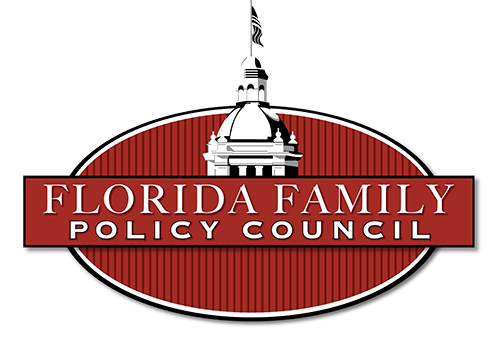FFPC Joins Amicus Brief Filed in Landmark US Supreme Court Religious Liberty Case
Case on appeal addresses same legal issues as proposed “Competitive Workforce Act” in Florida
Florida Family Policy Council joined other leading organizations across the country to file an amicus curiae, or “friend of the court”, brief in the Masterpiece Cakeshop v Colorado Civil Rights Commission case. The Supreme Court agreed to review the case on June 26th and oral arguments are expected to be heard this fall. The case is one of many involving artists who have declined to use their artistic talents to participate in same-sex weddings on the basis of their religious beliefs. While other cases involving photographers, florists, and the like have been working their way through the courts, this is the first time the Supreme Court has agreed to hear arguments in this type of case; namely, where a law creating a new protected class for sexual orientation and gender identity has been passed and an artist has declined to provide their services for a same-sex wedding. In Florida, this type of law is called the “Competitive Workforce Act” and while those in the LGBT movement have attempted to pass it for many years, they have failed thus far.
 In the case of Jack Phillips, two men came into Jack’s bakery in 2012 requesting a custom-designed wedding cake for their same-sex ceremony. In an exchange lasting only a few seconds, Jack offered to make the couple any other type of baked good or sell them a pre-made cake but stated that because of his faith he couldn’t design a cake celebrating that particular event. The two men left and shortly after filed a complaint with the Colorado Civil Rights Commission alleging sexual orientation discrimination. The Commission ruled against Jack in December 2013, saying that designing and creating cakes is not speech protected by the First Amendment. The Commission ordered Jack and his staff to go through a “re-education” program, implement new policies to comply with the Commission’s order, and file quarterly “compliance” reports for two years to show that Jack had completely eliminated his religious beliefs from his business.
In the case of Jack Phillips, two men came into Jack’s bakery in 2012 requesting a custom-designed wedding cake for their same-sex ceremony. In an exchange lasting only a few seconds, Jack offered to make the couple any other type of baked good or sell them a pre-made cake but stated that because of his faith he couldn’t design a cake celebrating that particular event. The two men left and shortly after filed a complaint with the Colorado Civil Rights Commission alleging sexual orientation discrimination. The Commission ruled against Jack in December 2013, saying that designing and creating cakes is not speech protected by the First Amendment. The Commission ordered Jack and his staff to go through a “re-education” program, implement new policies to comply with the Commission’s order, and file quarterly “compliance” reports for two years to show that Jack had completely eliminated his religious beliefs from his business.
The amicus brief focuses not only on arguments surrounding the right to a free exercise of religion but freedom of speech. Specifically, the government cannot compel speech in violation of one’s conscience. If the Supreme Court rules against Jack, “the rights of all Americans would be trampled, but it would place a special burden on those Americans trying to earn a livelihood consistent with their faith.” The Colorado Civil Rights Commission has maintained that it is not violating Jack Phillip’s freedom of speech because cake baking/decorating is not speech. However, in cases where a bakery was asked to design a cake with a message opposing same-sex marriage, the Commission upheld the bakery’s right to refuse service on free speech grounds.
The brief also argues that cake design is clearly art. Supreme Court precedent has defined art as speech and, thus, because the government cannot compel speech, it cannot compel a cake designer (or other artists) to use their artistic talents in regards to a same-sex wedding. “The most dangerous aspect of the lower court’s decision is the idea that public accommodation laws somehow override the promise that ‘The First Amendment protects the right of individuals to hold a point of view different from the majority and to refuse to foster . . . an idea they find morally objectionable.’”
The brief concludes that “Government coercion of speech or conduct that violates the religious conscience of the speaker or actor is not only a violation of the First Amendment, it is also patently un-American and a gross violation of personal liberty.”
Florida Family Policy Council and its sister organization, Florida Family Action, continue to fight against instituting the same type of law as the one being used to punish Jack Phillips for simply trying to live a life consistent with his faith. However, while the anti-liberty and anti-business “Competitive Workforce Act” has failed for many years, it continues to pick up ignorant supporters unaware of the chilling and dangerous effect of these laws. If passed, the “Competitive Workforce Act” would create a weapon to punish citizens who want to live and work according to their conscience without fear of reprisal by the government for exercising their right to religious freedom and free speech.
Click to download the persuasive Amicus Brief in PDF format.
